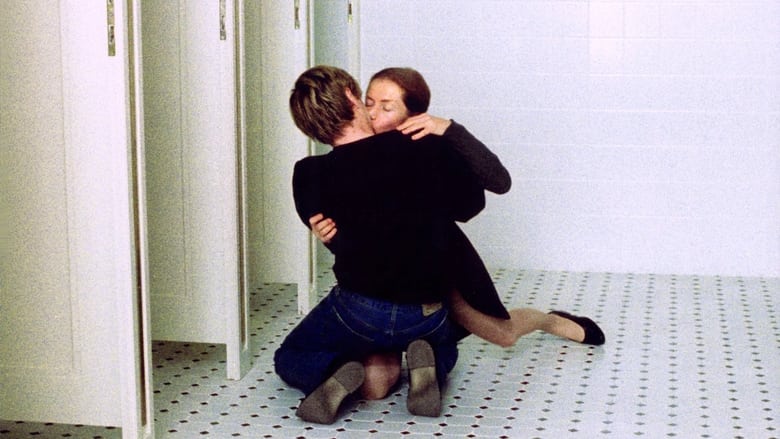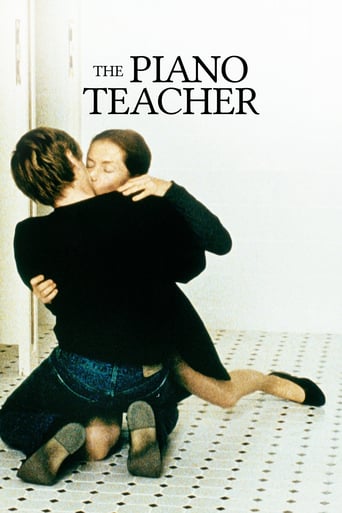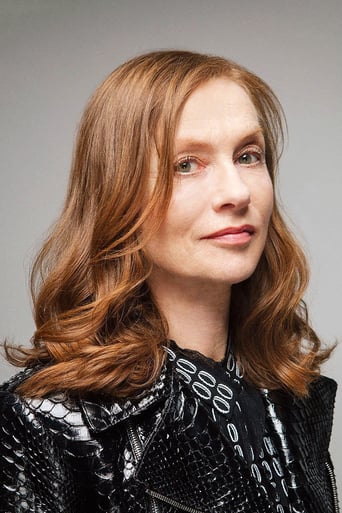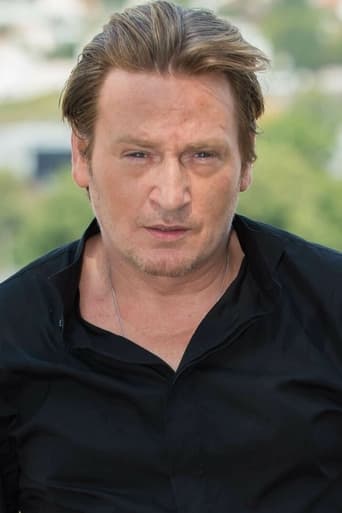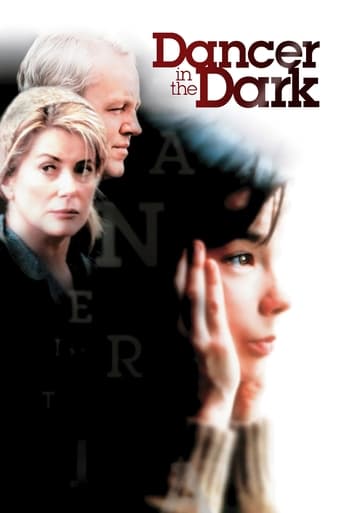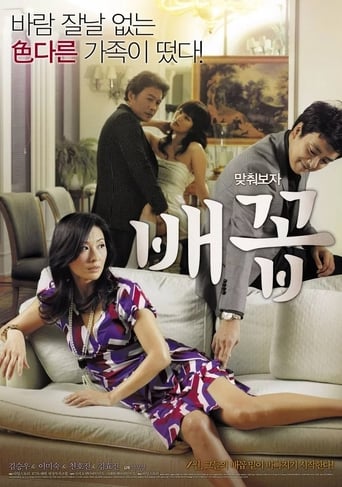The Piano Teacher (2002)
Erika Kohut, a sexually repressed piano teacher living with her domineering mother, meets a young man who starts romantically pursuing her.
Watch Trailer
Free Trial Channels
Cast


Similar titles
Reviews
After playing with our expectations, this turns out to be a very different sort of film.
It's the kind of movie you'll want to see a second time with someone who hasn't seen it yet, to remember what it was like to watch it for the first time.
This is ultimately a movie about the very bad things that can happen when we don't address our unease, when we just try to brush it off, whether that's to fit in or to preserve our self-image.
A clunky actioner with a handful of cool moments.
Haneke's adaptation of austriac Nobel Winner novelist Elfriede Jelinek will inevitably leave an impression on you be it a good one or not. The film follows piano teacher Erika Kohut, a middle aged woman who is torn between her abusive, possessive mother's expectations and her own personal desires. This,however changes when she meets Walter Klemmer, a young and extremely competitive music enthusiast who takes an interest on her. From them on you see Erika slowly leaving her confortable zone of power as a strict and harsh piano teacher to a place of complete vulnerability as she shows her most inner hidden desires to Klemmer. From the beautiful soundtrack,sometimes accompanied by real playing by the lead actors, to the ambiguous commentary on male-female sexual power relations,the breath-taking acting done by lead Isabelle Huppert,the gut punching, stomach turning climax and ending segments;La Pianiste not only makes justice to Elfriede's novel but also in some ways surpasses it.
'The Piano Teacher' is a brutal exploration and analysis of a woman's fetishes and sexual urges. Erika is an anti-hero, she is not someone who evokes complete empathy, but the complexity of character makes her extremely interesting to analyse and interpret. Right from the very first scene Haneke establishes a very abusive relationship between Erika and her mother. The mother(who is never given a name to add to her persona) is an immensely overbearing woman who still has a huge hold and influence on the life of the middle-aged Erika. It is also hinted at that her father underwent mental disintegration which may have also had an impact on Erika's mental state during her formative years. It is slowly revealed that the sexual repression that Erika has had to live under due to her mother, has resulted in her developing various sexual fetishes like voyeurism which range from some interesting habits like frequenting porn stores to some absolutely disturbing habits like self-mutilations. She sees these somewhat twisted sexual fetishes as her way to defy the restrictions placed on her by her mother. However this narrow attitude of viewing sex as a means to defy her mother instead of a way to make love made her build a wall around her making her distant and immune to the possibility of developing any feelings for someone.'The Piano Teacher' for me revolves around the concept of control. Erika never had complete control over her life. Her sexual voyeurism and fetishes were her way to take some control back. Along with this she also overbearingly controlled the performances of her students which at times involved full-fledged intimidation. As soon as she starts developing feelings for Walter, we see her feel uneasy, very flustered and tentative. This is because opening up to him and revealing her complete self(along with her fetishes) to someone would involve giving away the bit of control that she wants. The dynamic between Erika and Walter in its progression and in the way the control shifts from one character to another, feels natural and considering the climax of the film, very believable due to the inherent risks that were always going to appear from Erika's point of view.Haneke doesn't engage in too much flashy camera like he did in 'Code Unknown' with the numerous long shots. The long unbroken shots are here too, but they are used sparingly for crucial scenes. Haneke uses a lot of subtlety in the way he treats the characters and the sensitive subjects with some examples of genuinely brilliant staging and direction of potentially risky scenes. Another thing that Haneke focuses on is close-ups and reaction shots of Isabelle Huppert, which brings me to Huppert's performance. This freaking woman has the ability to convey 25 different emotions with one single look or a subtle raising of the eyebrow or a subtle chuckle. She has the skill to be commanding as well as vulnerable at any moment and Haneke makes use of this with the close-ups and extended shots where the camera just rests on her face. This film will certainly not be as effective without that central performance. Benoît Magimel and Annie Girardot deserve admiration for their performances too.This is not a film for everyone. But the complexity of the characters and Haneke's uninhibited and piercing treatment of sexuality, control and power make this film worth a strong recommendation.
Since when did depravity become entertainment? This film starts out kinky and descends into utter depravity. I'm no prude but I now know that I do have limits. If I were suicidal, I'd be looking for a way to off myself right now. I can't believe that the producers of this film felt anything other than total hatred for its intended audience. The Maltin book gave this movie three-and-one-half stars. I'm assuming that one star was for originality, a second for acting, a third for editing, and the half for holding the audience's attention long enough to be around for the extended slide into complete depravity and disgust. I feel like I need to take a shower. Please excuse me.
Although "The Piano Teacher" is a French film with dialogue in French, it is set in Austria, based on a novel by an Austrian writer (Elfriede Jelinek) and directed by an Austrian-born director, Michael Haneke. The original French title of this film was "La Pianiste" which literally means "The Pianist", as does Jelinek's title "Die Klavierspielerin". This title was not, however, used in English, doubtless to avoid confusion with Roman Polanski's film of that name. The main character is Erika Kohut, a professional pianist and a piano professor at a Vienna music conservatory. Outwardly Erika is a reserved, repressed and puritanical individual. Although she is already in her forties she still lives at home with her elderly, domineering mother; the two even share the same bed. We never see Erika's g father but learn that he is incarcerated in a psychiatric asylum. There is, however, a hidden side to her personality, first revealed when we see her acting as a Peeping Tom, spying on courting couples at a drive-in cinema. More of this hidden side is revealed when Erika begins a sexual relationship with a good-looking young pupil, Walter Klemmer. Although Walter is physically attracted to his teacher, he is repelled by her sadomasochistic tendencies, which leads to a curious love-hate relationship growing up between them. Erika's speciality as a pianist is Schumann and Schubert; Schubert's music plays a particularly important part in the film. This struck me as very appropriate, as his music has always struck me, like that of Mozart, as being full of emotion but hiding it behind a veil of reserve, in contrast to the much more openly emotional and Romantic music of slightly later composers such as Berlioz, Liszt and Wagner. I felt, however, that the film rather pandered to the Hollywood myth of Schubert as a shy, ugly little man who poured into his music all the emotions he could not express in life; in reality he seems to have been a successful womaniser, even though he was far from handsome. Isabelle Huppert is often compelling, and Annie Girardot is also good as Erika's witch-like mother, but this is not a film I cared for. In what is supposedly a character study far too much is left unexplained, such as the incident in which Erika deliberately injures one of her female students by putting broken glass in her coat pocket. In the violent sexual encounters between Erika and Walter it is never made clear whether he is abusing her or merely pandering to her masochistic tendencies. Haneke (who acted as scriptwriter as well as director) might think that this distinction does not matter, but I felt that it was very relevant to an understanding of Erika's character. "The Piano Teacher" seems to have been intended as a dark, disturbing psychological study, but I found that it did not do much to explain Erika's behaviour except in terms of that old get-out "sexual repression"; there are doubtless many people who are sexually repressed, but most of them do not behave in the same way as Erika, who appears to be verging on the criminally insane. "The Piano Teacher" may be dark and disturbing, but it disturbs us to no good purpose and hides little of substance beneath its darkness. Having been greatly impressed by Haneke's more recent "The White Ribbon", I was very disappointed by this film. 4/10

